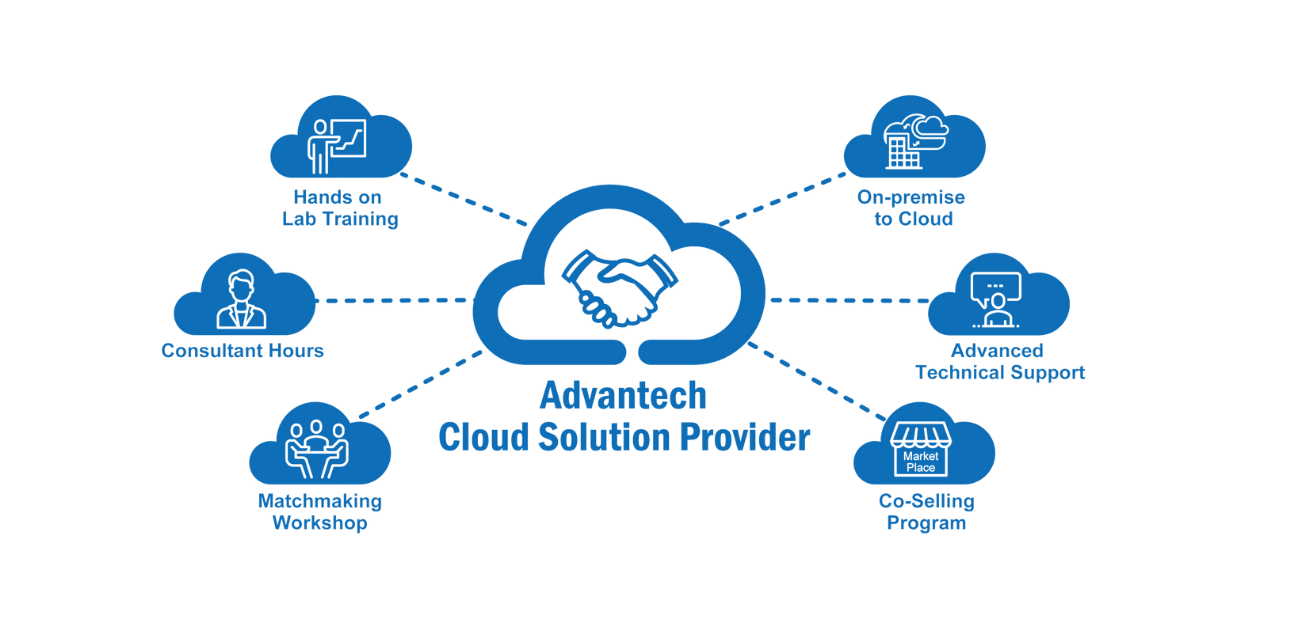Grasping LinkDaddy Cloud Services: The Ultimate Guide to Cloud Services Press Release Strategies
Grasping LinkDaddy Cloud Services: The Ultimate Guide to Cloud Services Press Release Strategies
Blog Article
Streamline IT Administration With Cloud Provider
Cloud solutions have actually emerged as a viable solution for businesses looking to enhance effectiveness, lower costs, and improve total IT performance. Exactly how specifically do these cloud solutions revolutionize conventional IT administration practices? Allow's check out the transformative influence of leveraging cloud solutions on IT operations and the key factors to consider for effective implementation.
Benefits of Cloud Services

Moreover, cloud solutions allow companies to improve their functional effectiveness by streamlining processes and minimizing the moment and resources required for handling IT facilities. With cloud services, services can automate routine jobs, such as software application updates and information backups, freeing up IT groups to focus on even more strategic initiatives that drive business worth.

Improved Scalability and Flexibility
Cloud solutions give organizations with unparalleled scalability and versatility in handling their IT resources successfully. Scalability is an important attribute of cloud services that permits companies to quickly change their IT resources based on demand. With cloud services, services can quickly scale up or down their computer resources, storage capability, and network transmission capacity to meet altering requirements without the requirement for significant upfront financial investments in hardware. This flexibility allows organizations to adjust to changing work, seasonal needs, or unanticipated development without experiencing downtime or efficiency issues.
Moreover, cloud services use the adaptability for workers to gain access to firm data and applications from anywhere, at any moment, and from any type of gadget with a web connection. This capability improves performance and collaboration among remote groups or employees working in various locations. In addition, cloud solutions supply the flexibility to pick from a selection of service designs, such as Infrastructure as a Solution (IaaS), Platform as a Solution (PaaS), or Software as a Solution (SaaS), based upon the certain demands of the company. The enhanced scalability and adaptability used by cloud services empower services to enhance their IT operations and stay nimble in today's vibrant market setting.

Cost-Effectiveness and Cost Savings
With the capability to efficiently designate resources based on need, businesses utilizing cloud services can harness substantial cost-effectiveness and understand click here now substantial cost savings in their IT operations. Furthermore, cloud solutions minimize upkeep prices by changing the obligation of hardware maintenance and software program updates to the solution provider. In general, the cost-effectiveness and cost savings achieved via cloud services make it possible for businesses to reapportion sources in the direction of innovation and development efforts.
Improved Security and Compliance
Enhancing the total protection position and ensuring regulatory conformity are critical considerations for companies leveraging cloud services in their IT monitoring methods. Cloud company supply sophisticated security procedures, such as information encryption, multi-factor authentication, and automated back-ups, which can boost a company's safety structure. These suppliers additionally stick to rigorous regulative standards, such as GDPR, HIPAA, and PCI DSS, assisting services satisfy compliance needs better.
Implementing cloud services can improve protection by giving streamlined control over gain access to monitoring, surveillance, and data protection. This centralized strategy simplifies safety monitoring and makes sure constant application of safety plans throughout the company. Cloud services typically use real-time protection updates and spots, decreasing the danger of vulnerabilities and prospective breaches.
Best Practices for Cloud Implementation
Carrying out cloud solutions efficiently needs an organized strategy that incorporates extensive planning and thorough execution. To ensure a smooth shift to the cloud, companies ought to begin by performing a detailed assessment of their existing IT facilities and recognizing which work are suitable for migration. It is necessary to establish clear objectives and specify crucial performance indications (KPIs) to measure the success of the cloud application.
One of the very best practices for cloud execution is to very carefully choose a cloud provider that aligns with the organization's needs in regards to safety, scalability, conformity, and cost-effectiveness. Additionally, creating a thorough movement plan that details the actions involved, timelines, and duties is critical for a successful execution.
Consistently maximizing and monitoring cloud resources to make sure effective efficiency and expense administration is an additional essential aspect of cloud execution best practices. Continuous analysis of the cloud environment and staying notified regarding updates and brand-new features used by the cloud service provider can better enhance the company's cloud technique. By following these best methods, organizations can enhance their IT administration and make best use Discover More Here of the benefits of cloud solutions.
Conclusion
Finally, leveraging cloud services for IT monitoring offers countless benefits, consisting of boosted scalability, cost-effectiveness, enhanced security, and compliance. By adhering to best methods for cloud application, organizations can streamline their IT operations, automate routine tasks, and enhance source allotment. This structured method enables IT groups universal cloud Service to concentrate on critical campaigns and advancement, ultimately delivering worth to the organization. On the whole, cloud solutions improve operational efficiency and agility in managing IT infrastructure.
Additionally, cloud services offer the adaptability to choose from a variety of solution versions, such as Facilities as a Solution (IaaS), Platform as a Solution (PaaS), or Software Application as a Solution (SaaS), based on the particular needs of the service. Additionally, cloud services lessen maintenance prices by shifting the obligation of hardware maintenance and software updates to the service company.Enhancing the total security position and ensuring governing conformity are extremely important factors to consider for organizations leveraging cloud services in their IT monitoring techniques.Frequently monitoring and enhancing cloud sources to make sure reliable efficiency and cost management is another essential aspect of cloud implementation ideal techniques. Continual analysis of the cloud setting and staying educated regarding updates and new features supplied by the cloud copyright can even more improve the company's cloud strategy.
Report this page